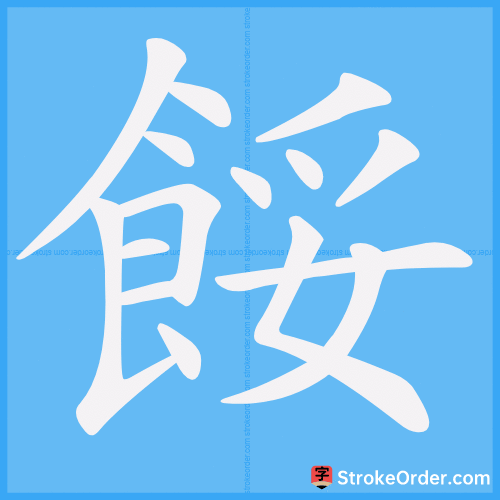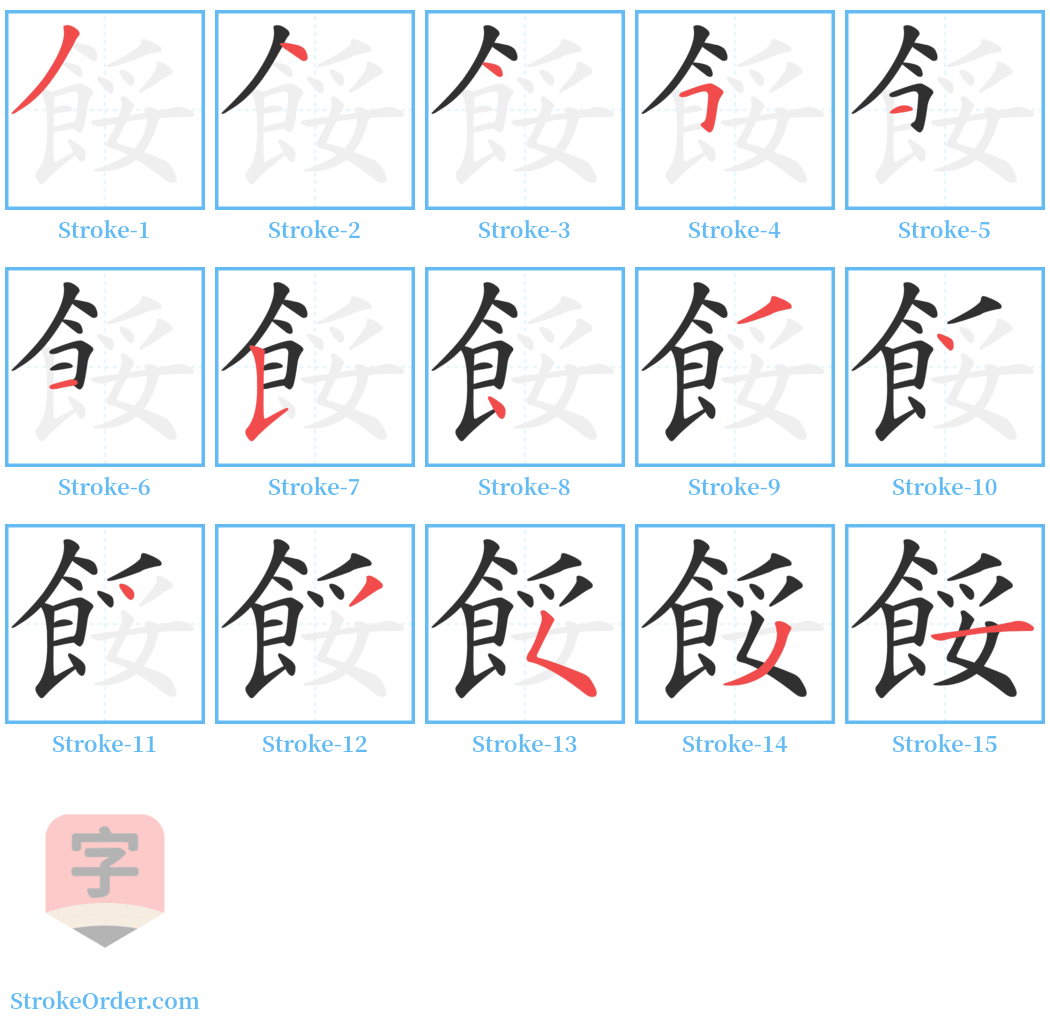餒 Stroke Order
Animated Stroke Order of 餒

Stroke Order Diagrams for 餒

Step-by-Step Handwriting Guide for 餒

Learn to Write Chinese Characters with Video Tutorials
Watch the video of writing the Chinese character "餒", learn the correct stroke order (笔顺) of the character "餒", and master the standard way of writing the character "餒".
Free Printable Handwriting Practice with Stroke Order: 餒
Printable Writing Practice Worksheet of "餒" in Portrait Orientation (Tian Zi Ge)

Printable Writing Practice Worksheet of "餒" in Landscape Orientation (Tian Zi Ge)

Information of 餒
Pinyin
něi
Radical
飠
Strokes
15 strokes
Usage
★★★
Definition
hungry
餒 (nèi)
1. Hunger.
饥饿。
Example: "耕也,餒在其中矣。" - "In farming, hunger is involved." (Lunyu, Wei Ling Gong)
2. Loss of courage.
丧失勇气。
Example: "胜不骄,败不馁。" - "Do not become arrogant in victory, nor disheartened in defeat." (Mengzi, Gong Sun Chou, Book 1)
3. Emptiness, poverty.
空虚,贫乏。
Example: "有飽學而才餒者。" - "There are those with rich knowledge but lacking in talent." (Wenxin Diaolong, Shilui)
4. Referring to fish that has rotted.
指鱼类腐烂。
Example: "魚餒而肉敗,不食。" - "Do not eat fish that is putrid and meat that has spoiled." (Lunyu, Xiangdang)
This term also generally refers to spoiled food.
Example: "食物餒敗,生蟲,欣然食之。" - "Food that has spoiled and grown worms is willingly eaten." (Huang Shuzheng, Taihai Shichalu)
Definitions:
餒、餧 (nèi)
- [形]
- 【本义】: hungry; famished
- 【造字法】: Phono-semantic compound. From 食 (food), with phonetic element 委.
1. Same as the primary meaning (En: famished; hungry)
2. Disheartened; discouraged; dispirited
Example: "行有不赚於心,則餒矣。" - "If actions do not earn satisfaction in the heart, one will feel discouraged." (Mengzi, Gong Sun Chou, Book 1)
Additional meanings:
1. Referring to fish that is rotten (En: (of fish) putrid).
2. General term for spoiled food.
Example: "食物餒敗,生蟲,欣然食之。" - "Food that has spoiled and grown worms is willingly eaten." (Huang Shuzheng, Taihai Shichalu)